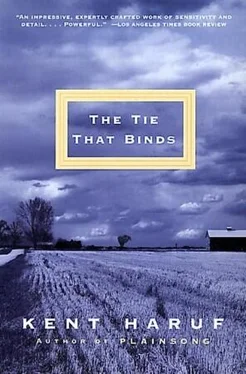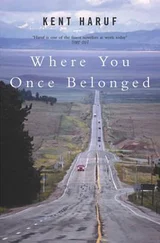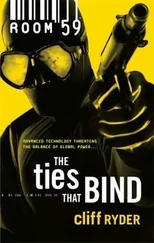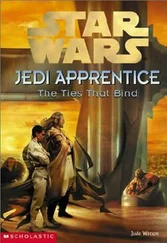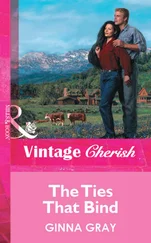But Roy now, I suppose Roy would have come anyway, even if Indians were still here. He was about enough of a fox terrier to trot into a territory that belonged to somebody else, and once he got there, raise his hind leg to it, claim it for his own, without thinking twice about prior claims or possible consequences. But Roy never got the chance to prove that either. Colorado had already been a state for twenty years by the time he got here; the Indians had been gone for at least that long; and the little piece of land he claimed was signed over to him in a local government office.
But all right, by late spring in 1896 the Goodnoughs got here in their wagon from Iowa, and if they were disappointed, if what they found wasn’t what they expected to find, having read those flyers and government brochures, still they stayed; they didn’t go back. They unhitched the wagon, and then, no doubt, Roy stuck Ada in the ramshackle boardinghouse in town to bide her time, to wash the dirt out of her hair and write another long miserable letter home, while he rode out on one of the workhorses to look this country over. I don’t suppose that took him very long. He was in too much of a hurry; he was too muleheaded; he wanted to get some seed in the ground; and he might even have known that if he didn’t do something quick, then Ada might somehow wake from her dream and daze, sit up and look around her, and then just take off, walking if she had to, with her small chin and her big eyes pointed east. So, in a hurry, he looked this country over, finding the expanses of bluestem and buffalo and sand love and switch grass and prairie sand reed, which still stood belly high on his Belgium, locating those areas that still remained after other, earlier homesteaders had staked their claims and done their chopping and busting.
He found what he thought he wanted seven miles south of town. There was already a house and a shed or two and a couple of pens, just a half mile west of the corner of the quarter section Roy intended to claim for himself, but in the house there was only a six-year-old boy living alone with a black-eyed silent woman. And I believe Roy picked that place because he thought that boy and that half-Indian woman who lived there, a half mile up along what wasn’t even a wagon track yet, would never last, in fact, could never last. With time then, and not very much time at that, he believed he would be able to take over that other place that was already started, because there wasn’t any man around. The man who should have been there had disappeared three years earlier. On a Saturday morning he had gone to town — to the three stores, the boardinghouse, the saloon and graveyard and fifteen or twenty wood houses that meant Holt then — and he never came back, and never wrote either, since the six-year-old boy couldn’t read yet and because the pipe-smoking woman he left behind never would be able to read. It would just be a waste of pen and paper and a two-cent stamp to do something like compose a letter and tell why.
Anyway, you understand, because it was that particular quarter section of grass a half mile east of that other house that Roy picked for his own, decided in all the world was his, that’s the reason why I know what I do about him, and also about Ada and Edith and Lyman, because, of course, the six-year-old boy living in the house was John Roscoe, and John Roscoe lasted.
Well, the Goodnoughs lasted, too. And things — at least at first — went along about like you would have expected them to. Roy filed his claim, put his horses to pulling a sod-busting plow, planted his bag of Iowa seed as best he could in the rough ground, bought a cow or two to stake out on the nearby grass, and then turned finally to throwing together a frame house for Ada. She’d been living under a tarp till then, which was tied to the side of the wagon and which had to be untied any time Roy decided he needed to haul something, living almost like she was some kind of nomad Arab but without even that much permanence or experience at it. She had to cook over an open fire and try to coax a few beans and peas and maybe a couple of zinnia plants to grow in the corner of the plowed sod Roy allowed her to call a garden. It wasn’t easy. To water her little garden and even to have something to drink but never to have enough left over to take a bath in, Ada had to walk a half mile one way with two yoked pails across her thin shoulders and fetch water from that other place where the boy and the woman lived and owned a windmill that pumped water.
But that other woman apparently took some interest in her. Or maybe she felt something like pity towards her— like maybe you would towards some dog that had been dropped off out in the country and not some strong mongrel dog that would manage to live anyhow, but a to poodle, say, or a Pekinese, that belonged in the parlor— because I know for a fact that at least once the woman walked out to Ada, where Ada was stooping beside her two pails at the windmill and horse tank, splashing water onto her wrists and face, and said:
“Don’t you want to take a bath?”
Ada looked at her. She did something with her mouth that was meant to be a smile and then quick looked east to where she could just make out Roy walking behind his horses in the field, and turned back.
“If it wouldn’t be any bother.”
“Come into the house.”
So I know that Ada took at least one more bath that summer besides the one she had taken in the boarding-house in town. When she was dressed again, she said:
“But don’t tell him. He won’t want to know I took a bath in somebody else’s house.”
Well, Roy never knew that about his wife. And I suppose there were a lot of other things he didn’t know or understand about her, but he did build her a house. He had the first part of it completed by fall. Later there were other rooms added on, a new kitchen and a back porch and also what turned out to be a parlor, but the first square two-story part of the house was raised late that summer. And he was a good rough carpenter, I’ll say that for him.
He had to buy the lumber in town, in Holt, and haul it home in his wagon, and then he had to nail it together himself. Ada helped him to lift the wall frames into place and steady them while he tacked them down, but for the most part he did all the work himself, since he had picked a place to live where there wasn’t another full-grown male anywhere near, and anyway he wouldn’t have asked for help if there had been. They bought a few sticks of furniture to go along with Ada’s sewing machine and moved into the house sometime before time to pick corn.
Roy’s dryland corn didn’t do very well that first year. There wasn’t much to pick. There was too much sagebrush and soapweed and too many grass roots to contend with, and even in his hurry the corn had still been planted late; the corn seed was still in the bags when most of what rain we get here falls in the spring. So his corn didn’t do very well, and I don’t suppose Ada was doing very well, either. By corn harvest I believe she was good and sick, because sometime in August of that summer Roy had found enough sap and energy and time too to get her pregnant, so that on the night of April twenty-first in the following spring, after she had managed somehow to get through that first long High Plains winter, Ada gave birth to a girl she named Edith.
Roy was going to do that by himself, too, of course. He was going to boil the sheets, rotate the head, slap some breath into the baby, and sew Ada up afterwards with needle and thread — without help from anyone. I don’t know, maybe he had read some flyers and government brochures about that too, but things in this case didn’t happen the way he expected them to, either. Because sometime that night, after Ada had been in labor for two or three days with her thin brown hair sweat-stuck to her face and her white thighs gone as rigid as sticks, Roy caught one of his workhorses and galloped that dark half mile west to the other house and woke the half-Indian woman. When her face appeared in one of the upstairs opened windows he yelled up at her:
Читать дальше
